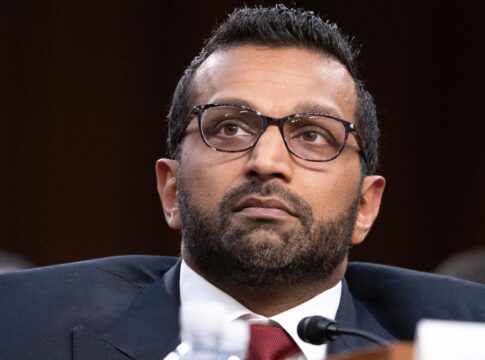Attorney Ty Clevenger’s relentless battle against the FBI has intensified as he targets high-ranking officials for allegedly concealing crucial information in the Seth Rich case. The determined lawyer has launched a direct assault on what he characterizes as the Bureau’s deliberate obstruction of justice. What does this moment reveal about the Russia collusion narrative?
FBI’s Shifting Positions and Obstruction Tactics
Attorney Ty Clevenger has escalated his fight for transparency in the Seth Rich case, directly challenging the FBI’s continued resistance to releasing critical documents. In a strongly worded letter to newly appointed Attorney General Pam Bondi and FBI Director Kash Patel, Clevenger accused the Bureau of “deliberate and willful defiance” of court orders requiring document disclosure.
The FBI initially denied possessing Seth Rich’s laptop but was later forced to admit ownership after Clevenger’s persistent legal challenges exposed their false statements. Despite this acknowledgment, the Bureau continues refusing to release electronic metadata and other potentially explosive information, using what Clevenger characterizes as “incredibly weak excuses” to justify withholding thousands of documents.
The @FBI filed a response to our contempt motion in the Seth Rich case, and it raises more questions than it answers. I've posted the response and two exhibits below.
The response offers some incredibly weak excuses for thousands of missing documents, and it contradicts some of…
— Ty Clevenger (@Ty_Clevenger) May 7, 2025
Potential Implications for Russia Collusion Narrative
Clevenger’s legal pursuit centers on documents that could undermine the official narrative regarding the 2016 DNC email leak. The attorney has highlighted evidence suggesting Seth Rich, not Russian hackers, may have been the source of DNC emails published by WikiLeaks—a revelation that would dramatically alter understanding of the Russia collusion claims used against former President Trump.
Julian Assange, WikiLeaks founder, and investigative journalist Seymour Hersh have both made statements suggesting Rich’s involvement in the leak. Clevenger’s case represents more than a FOIA dispute; it potentially challenges the foundation of years of political narratives about Russian election interference.
The FBI's response to our contempt motion will not be due until next Tuesday. The Trump Administration has assigned the Asst. U.S. Attorney on our case to work on a major immigration case. Hopefully this will give @Kash_Patel and @AGPamBondi time to respond to our April 18, 2025… https://t.co/AlT34HbOeU
— Ty Clevenger (@Ty_Clevenger) April 29, 2025
Call for Congressional Intervention and Accountability
Clevenger has now shifted strategy, urging congressional leaders to demand explanations and hold public hearings on the matter. His latest communications suggest that Michael G. Seidel, former chief of the FBI’s FOIA section, may have been forced out of his position in April 2025, potentially indicating internal acknowledgment of improper handling of document requests.
The attorney has proposed significant reforms to combat systematic FOIA violations, including appointing a “chief transparency officer” and criminalizing intentional FOIA violations. “Federal employees know there are no consequences for violating FOIA,” Clevenger stated, highlighting a culture of impunity that he believes enables ongoing government secrecy.
The FBI maintains it has complied with court orders while claiming many files are corrupted and that releasing information could harm ongoing investigations and national security. These justifications directly contradict earlier admissions and raise significant questions about potential high-level involvement in what Clevenger characterizes as deliberate obstruction designed to protect both the Russia collusion narrative and those potentially implicated in Seth Rich’s still-unsolved murder.


